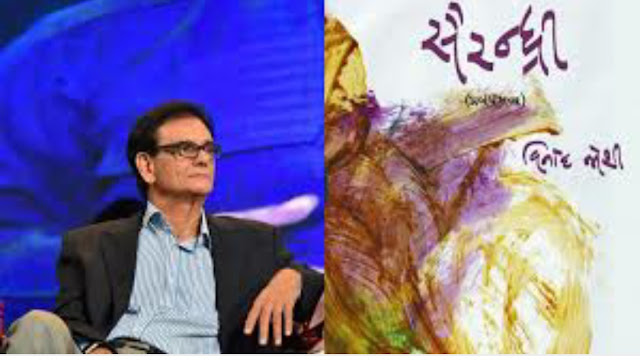Vinod Joshi's poem - Sairandhri review
Vinod Joshi's poem - Sairandhri review
Brief Introduction
- Vinod Joshi is a Gujarati poet, writer and critic from Gujarat in India. His notable work Zalar Vage Zoothadi most loved and sought-after collection of poems, his long narrative poem Tundil-tundika and Shikhandi poem based on Mahabharata characters Bhishma and Shikhadi, Sairandhri poem based on Dropadi, she is one of the character in Mahabharata. Shikhadi and Sairandhri both of the work it like retelling myth.
Vinod Joshi's recent publications “Sairandhri” poem composed in prabhandh form with seven Cantos, 49 chapters and 1800 lines. And based on Dropadi character of Mahabharata.
Lost identity-
Vinod Joshi create imaginary character of Dropadi or Sairandhri in his poem. Poet talk about Sairandhri had losted her real identity . And poet described Sairandhri, she wants to marry with Karna, because Karna also lost his real identity in Mahabharata. Both characters hides their identity so both condition is same for poet.
Through poem poet suggest that as human beings we all are hiding our self like as Sairandhri. Because we can’t show our inner feeling and desires everyday we are playing different kind of roles and hiding our self. In the Mahabharata’s Sairandhri was not alone, she always with Pandava and Krishna while to poet's imagine in his poem Sairandhri is alone nobody with her and she free from everything therefore she chose Karna for marriage not Arjuna. Poet described her beauty -
વિવશ સાંજ,નભ નિરાલંબ ,
નિસ્પંદ સમીર નિગૂઢ,
એક યૌવના નતમુખ ઊભી ,
વ્યગ્રચિત સંમૂઢ.
Her face sunken, a young lady is standing, her mind agitated amidst inert, inscrutable winds
when the evening is perplexed and the sky
forlorn.
Poet described woman character without any man support and poet say woman should feel proud on self.






Comments
Post a Comment